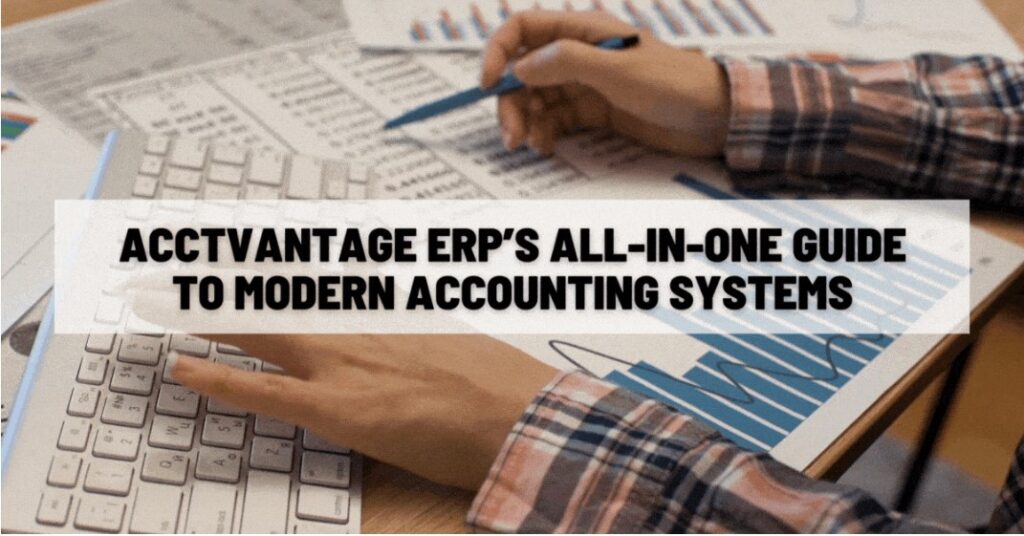
AcctVantage ERP’s All-In-One Guide to Modern Accounting Systems
When it comes to running a successful business, good accounting is an essential component. It can be the difference between success and failure.
Most of us don’t exactly enjoy accounting, but having the right tools and knowing how to use them can make it a lot easier, more accurate, and more efficient.
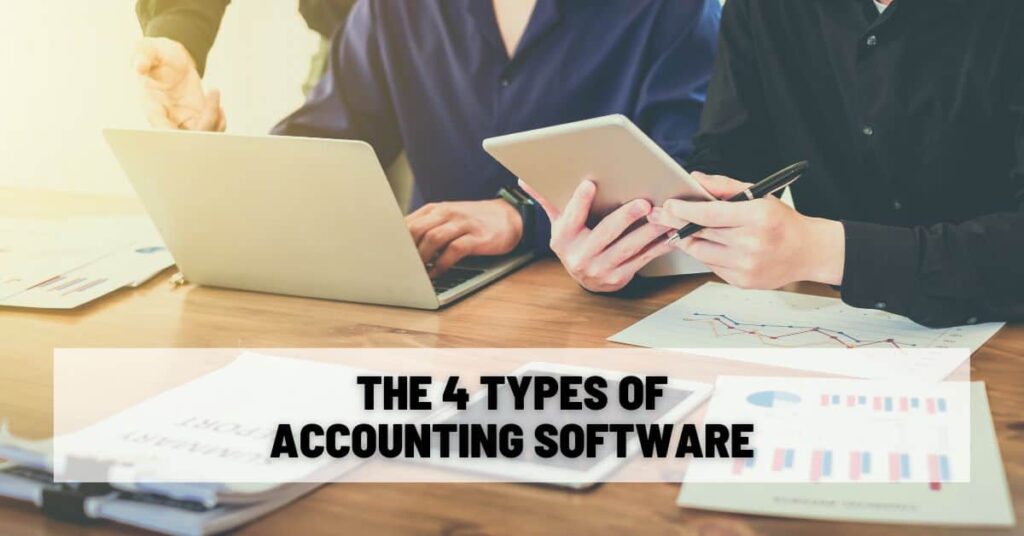
The 4 Types of Accounting Software
The term “accounting system” is deliberately a little nonspecific. Technically, it refers to any set of tools, methods, and practices that you use together to manage your business’ accounts. In practice, in the twenty-first century, that means software.
With the number of accounting software solutions available on the market, it can be tough to figure out which one is right for your business. Let’s go through the four different types of accounting software, their strengths, and their failings.
Spreadsheets
The simplest and cheapest option, spreadsheets are a great starting point for small businesses that just need to do basic accounting. You can create ledgers and record transactions in them, but they’re limited in terms of functionality and scalability.
With a little work and a few tutorials, you can make a spreadsheet do just about anything you want it to, but they come with just about zero error-checking capability, so wrong or missing data will have to be caught manually.
Off-The-Shelf Software
The best option if you need something more tailored to your business than a spreadsheet, off-the-shelf accounting software gives you a lot of features and plenty of scalability.
They come with lots of error-checking capability so mistakes are less likely to slip through the cracks, but they can be expensive, especially for small businesses.
Custom Software
Custom software is created from scratch based on your needs and specifications. It’s great for businesses that are looking for something very specific and don’t mind spending more for custom features.
That cost is, of course, its major disadvantage. If you go custom, you’ll have to pay both development and support costs. Custom software also has a not-undeserved reputation for being buggy and requiring a lot of maintenance. An off-the-shelf product will have much more funding for ongoing development and users flagging bugs than a custom solution, after all.
ERP Software
ERP stands for Enterprise Resource Planning, and it refers to a comprehensive business management solution comprising an integrated suite of applications. It includes accounting and finance modules, along with other features like customer relations management, inventory control, and more.
The fact that these modules are interconnected in an ERP system opens up a lot of possibilities.
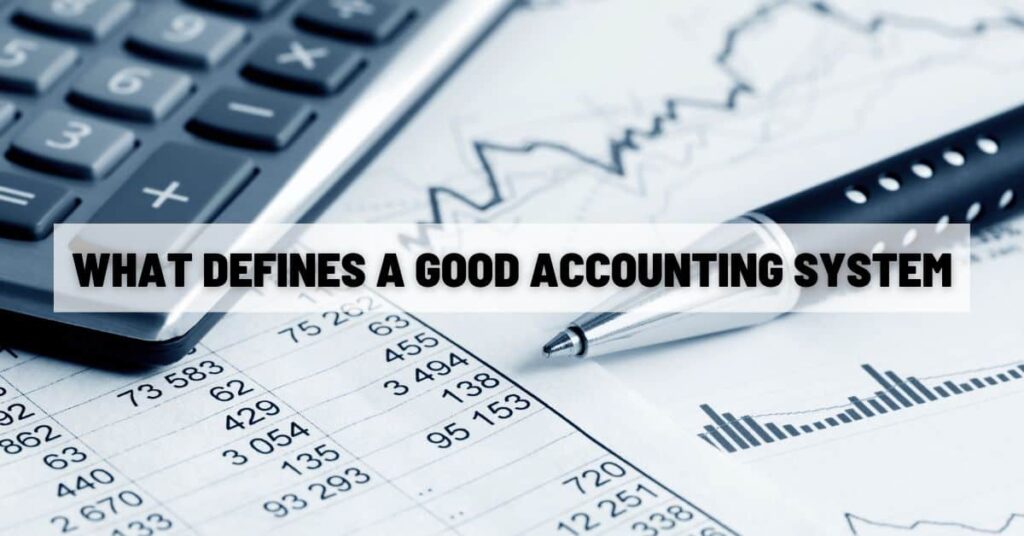
What Defines a Good Accounting System
Good accounting software has at least these three qualities:
The 3 Key Qualities of Useful Accounting Software
Accuracy
Accuracy is key when it comes to accounting software. Without accurate records, you’ll struggle to understand your financial standing and make informed decisions. Good accounting software provides users with the tools they need to ensure accuracy with every transaction.
This may sound obvious; computers don’t make mistakes, after all, right?
Well, that’s kind of true, but computers have to be programmed and operated by humans. A well-designed piece of software will point out what it suspects are errors and help you correct them before they cause you any major headaches.
Flexibility
You need to be able to adapt to changes as your business grows. Your accounting software needs to be able to change with you.
Good accounting software will give you the flexibility to add features and modify workflows as you use the system. It should also be easy to upgrade as time passes and new needs arise.
Cost-effectiveness
Of course, cost is always a consideration with any business tool. Good accounting software shouldn’t break the bank, but it should be worth the investment.
A good accounting system will provide you with value for your money. You should expect to get features that save you time and money in the long run.
A cheap accounting solution might seem like a bargain upfront but could end up costing you far more down the road due to lack of sufficient features or lack of effective support.
The Primary Benefits of Accounting Software
Some SMBs (small-to-medium businesses) try to manage their books in a cheap but outdated system, or by hand. But proper, modern accounting software has several major benefits over older methods:
A Simple and Reliable Accounting Process
Accounting software makes it easy to capture and store financial information accurately. It will also provide you with automated reports that give you a better understanding of where your money is going, how much you owe in taxes, and so on.
There’s been a big push in recent years toward user-friendly accounting software. This means you don’t have to be an accountant or even have a bookkeeping background to use the system effectively.
Enhanced Security and Disaster Recovery Capabilities
Data security is a vital concern for business owners. Good accounting software will offer additional layers of protection and redundancy, such as automated backups and encryption protocols.
In the event of a disaster or data breach, your accounting software should be able to restore and protect your financial data from loss or corruption.
Money Saved
Most people who switch to a modern accounting program find they save both time and money. Automation like recurring payments, invoice reminders, and automatic data entry will save you hours every week.
You’ll also save on manual data entry fees and the cost of hiring a bookkeeper. This is especially beneficial for small businesses that don’t have the resources to maintain a full-time accounting staff.
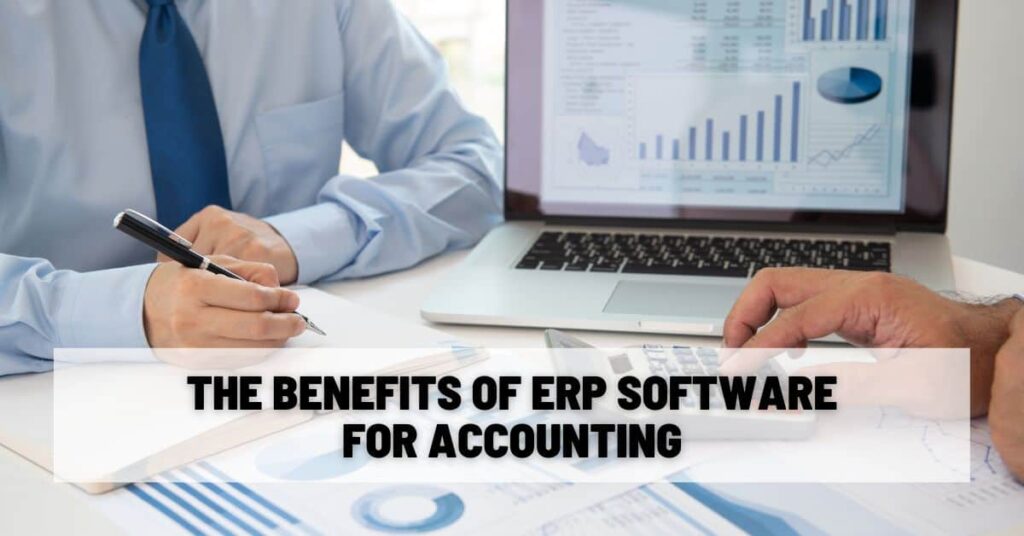
The Benefits of Enterprise Resource Planning (ERP) Software for Accounting
ERP software is a powerful tool for managing accounting and other business operations. It provides a unified platform for all areas of your business, including sales, marketing, customer service, inventory control, financial reporting, and more.
Or, in English, it’s a way to get all the various parts of your business on the same page. It will give you an overview of the entire business, helping you to make decisions in real time and to ensure that nothing falls through the cracks.
Unlike traditional accounting software, ERP software isn’t just focused on financial data-it ties together everything from customer relations to inventory control. This provides more accurate and detailed reports, giving you a better understanding of how each component of your business is performing.
This approach provides several benefits over siloed accounting software.
Easy Access to Information
A good ERP system will help you keep track of key metrics like revenue, expenses, inventory levels, carrying costs, and more.
When you use two different systems for accounting and inventory, like spreadsheets for inventory and some off-the-shelf package for accounting, there’s always a lot (and we mean a lot) of manual work involved to get accurate results. ERP systems can help you save time by providing a unified platform for all these functions.
When all of your departments are on the same page, it’s much easier to track progress and pinpoint potential issues before they become big problems. You’ll also be able to quickly identify any areas where changes need to be made to maximize efficiency and reduce costs.
Time and Money Saved
Manual entry is not only prone to errors; it also takes a lot of work. ERP systems automate many of the processes that would normally require manual entry. This saves you time and money, freeing up resources to focus on other areas of your business.
When you start using an ERP system, you suddenly gain a ton of extra time and energy. You’ll be able to devote time and energy to developing new strategies for growth, rather than spending it trying to manually track every little detail.
Improved Accuracy
An ERP system provides a single source of truth for all your business data. This helps you make decisions with confidence, knowing that you have an accurate and up-to-date picture of how the business is performing.
You’ll also be able to create reports that are more detailed and accurate than what would be possible with manual entry. This provides more insight into your financial performance and gives you a better understanding of where changes should be made.
In addition, ERP systems can help you detect mistakes earlier, reducing the risk of costly errors down the line.
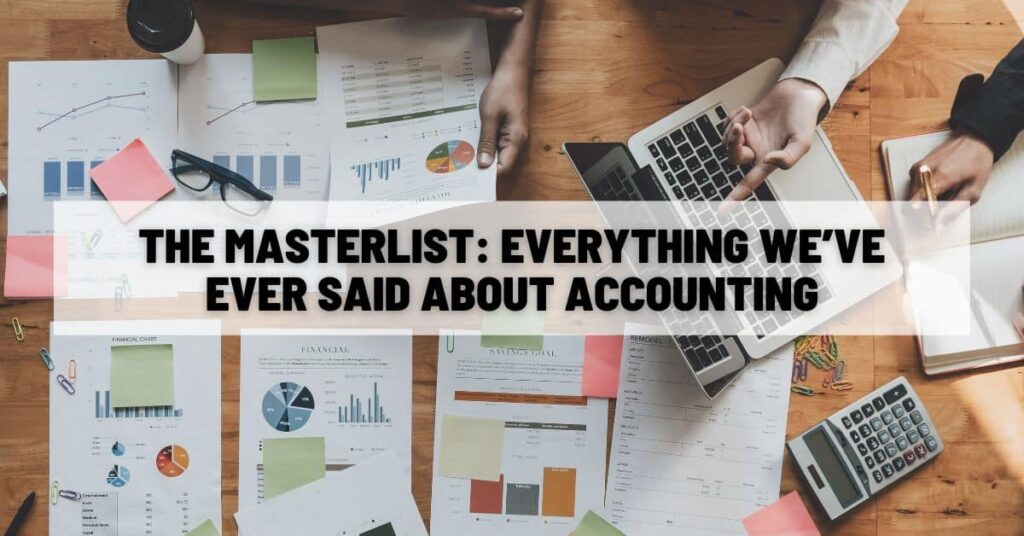
The Masterlist: Everything We’ve Ever Said About Accounting
- 3 Essential Qualities of Your Business’ Accounting System
- 3 Benefits of Using an ERP System for Your Accounting
- Why You Should Do Your Accounting In ERP Software
- 3 Critical Benefits of Computerized Accounting Systems for SMBs
- The 4 Types of Accounting Software
- 3 Reasons Why Managerial Accounting is Essential

